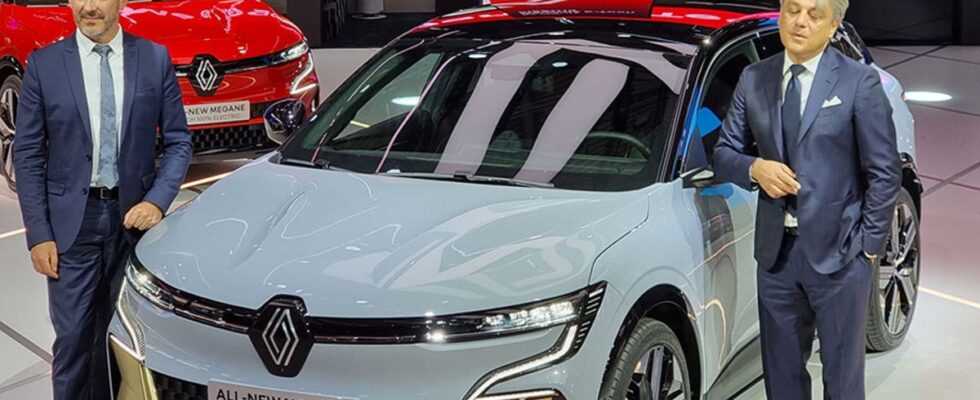2
Renault will be 100% electric in Europe by 2030, announced Luca de Meo, the group’s CEO. This electrification will also concern Alpine. As for Dacia, electrification will depend on the cost of batteries and charging infrastructure.
At the first IAA Mobility motor show in Frankfurt, world premiere presentation of the 100% electric Renault 5. © The Digital
Last week, Renault organized an innovation day (Techday) at its Technocentre in Guyancourt. The opportunity for CEO Luca de Meo to take stock of Renaulution, the group’s strategic plan covering 2020 to 2025 and unveiled in January 2021. During the presentation of this recovery plan, barely six months after taking function, the former CEO of Seat (Volkswagen group) planned 90% electrification. Eventually, the target was raised to 100% by 2030, but for Europe only. Luca de Meo justified this change by “the obligation to participate in the transition” for a carbon neutral Europe.
At the first IAA Mobility motor show in Frankfurt, world premiere presentation by Luca de Meo of the 100% electric Renault Mégane E-TECH. © The Digital
To stay on course, Renault had planned to market nearly 14 electrified vehicles, including seven in all-electric mode. After the recent launch of the Mégane E-TECH Electric, at least four 100% electric models should follow, including the famous Renault 5 and Renault 4, not to mention the Kangoo. All of these vehicles are expected to hit the market by 2025.
A plan B for Dacia, which could sell thermal after 2030
Despite good sales in 2021, the electrification of the Alpine sports brand also seems to be in place. Renault wishes to extend its aura in China and, if the group’s sales are not famous in the general vehicle segment, the sports and high-end Alpine branch seems to have good potential.
There remains the case of Dacia, which was a hit last year on the French market by having sold more private vehicles than Renault with its Sandero, Duster and Spring models. However, if the price of kWh were to remain high and the infrastructure of the charging stations does not follow, the brand low-cost could continue to offer thermal models after 2030. This is what Luca de Meo calls “plan B”, specifying that Dacia would be electrified “at the last moment” without this distorting the “quality-price ratio”, the essence even brand.
Full box for the Dacia Spring, the small electric SUV. © Renault/Dacia
The diamond brand thus joins the cohort of car manufacturers (Volvo, Ford, Stellantis, etc.) having announced their exit from all combustion engines by 2035, the date set by the European Union. The future Euro 7 standard should not fix the future of thermal with even more restrictive rules. However, some manufacturers are stepping up and some governments, including that of France, seem to want to negotiate so that the transition is done in a more reasoned way.

